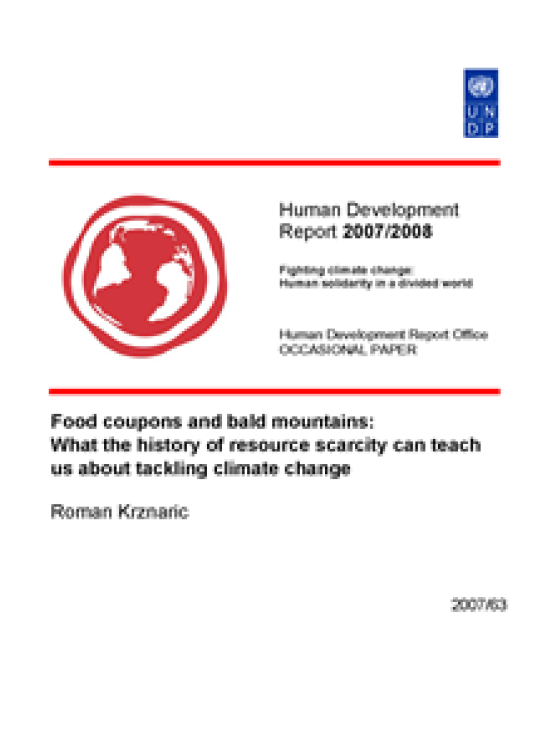Food coupons and bald mountains
What the history of resource scarcity can teach us about tackling climate change

Download Report by Language
Document
krznaricroman2.pdf
(360.44 KB)
Citation
Krznaric, Roman. 2008. Food coupons and bald mountains: What the history of resource scarcity can teach us about tackling climate change. New York.
Food coupons and bald mountains
What the history of resource scarcity can teach us about tackling climate change
Posted on: January 01, 2008
This paper examines two striking examples of societies that faced collapse due to acute scarcity of resources yet successfully countered the problem and survived: the response to forest depletion in pre-industrial Japan during the Tokugawa period (1600-1868); and the introduction of rationing and price controls in Britain and the United States during World War II. After discussing the contexts in which scarcity arose, the processes through which the problem was tackled, and the reasons for the success of the response (and its limitations), the paper draws conclusions about the lessons these case studies provide for confronting the crisis of climate change. The historical examples give some reasons for hope. They show that successful and radical reform is possible, that government regulation is an effective means of response, that local action makes a difference, and that tackling scarcity can be a means of promoting social equality. Unfortunately, the cases also give strong reasons for pessimism. They demonstrate: the importance of political resolve and long-term vision, which today’s politicians generally lack; that people and governments will take action when there is genuine fear in society, yet fear of climate change is absent in most countries today; that market solutions must be approached with caution, yet we seem to be placing considerable hope in them for solving the climate crisis; and that societies must be weaned off consumerism, yet modern consumer culture appears so deeply ingrained as to be unassailable. Overall, the historical case studies allow us to step back and look at the big picture of climate change with a clarity that the intricacies of contemporary policy debates do not allow.

